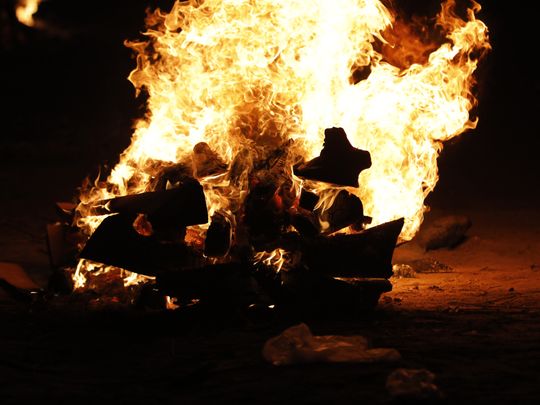
New Delhi: The lifeless are picked up from infected homes by exhausted volunteers, piled into ambulances by hospital workers or carried in the back of auto-rickshaws by grieving relatives.
At the cremation grounds, where the fires only briefly cool off late at night, relatives wait hours for their turn to say goodbye. The scenes are photographed, filmed, broadcast. They are beamed to relatives under lockdown across India. They are shown on news sites and newspapers around the world, putting India’s personal tragedies on display to a global audience.
Local residents record the fires from their roofs to show the world why they must wear masks even inside their homes. The smoke and smell of death is so constant, so thick, that it covers the narrow lanes for much of the day, seeping through shuttered windows.
The flames bear witness to the devastation wrought by India’s COVID-19 crisis. They show the losses in a country where the dead and infected are widely believed to be grossly undercounted. They stand as a rebuke to a government accused of mismanagement by many of its people.
Beyond the images, the cremation grounds bear a painful routine of trauma that will weigh on families long after the headlines fade. The pandemic has stripped the final rites of their usual space and dignity.
Hindu tradition stipulates cremation as the preferred disposal method for the dead. In a belief focused on the liberation of the soul, cremation breaks attachment to the physical body. After death, the eldest son typically leads a procession of close male relatives carrying the body to the pyre.
“Flames rising from pyres, people wearing PPE and everyone covered in plastic - it felt like the end of the world,” said Dimple Kharbanda, a movie producer who flew to New Delhi last week from Mumbai to arrange the final rites for her father.
The retired businessman had not had COVID-19, but his rites were blighted by the pandemic. Kharbanda begged relatives not to come to Delhi because of the danger of infection.
“Those private moments when you want to say goodbye to your loved ones, in private, are being denied,” she said. “Death has become a spectacle.”












